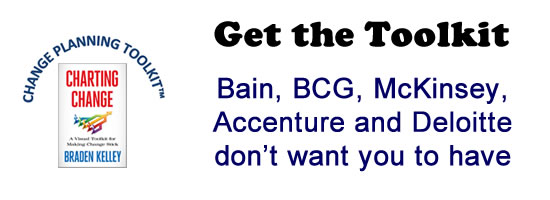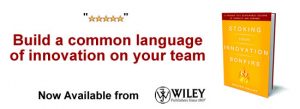5 Steps for Defining Your Personal Path to Success

How you measure success will be the most important factor in your achieving it.
Each one of us has his or her own view of what constitutes success. And yet, we talk about success as though it were some sort of universal constant which can be achieved by attaining a set of measurable goals.
I’ll be the first to admit that the mile markers we cross in driving towards success are very sweet indeed. I can vividly recall the pride we had when our fledgling company made the Inc 500 (Yes, there were only 500 back then!), or the excitement of topping our first $10 million in revenues. But I also recall how quickly those moments came and passed.
Those moments where not success, they were the shadow of success. And, unfortunately, all too often it’s much easier to see the shadows than what casts them. Let me explain with an analogy.
I Deserve Better
I teach at a prestigious university in Boston where the students are uber competitive. Everyone is grade conscious and every so often a student of mine will contact me to discuss a grade that they are unhappy with. It’s a tough class and it’s a hard to grade. The difference between a B+ and an A- is less than a tenth of a point and sometimes even hundredths of a point.
“Those moments where not success, they were the shadow of success.”
Recently a student reached out to me because she was very distressed by her semester grade, a B+. Her argument was that she really felt her participation and performance deserved at least an A- rather than B+. I explained the complexities of the grading process but I could sense there was more bothering her than just this one grade. I asked her why the letter grade was so important. Mind you this wasn’t the difference between a pass/fail or a C and an A, but a B+ and an A-.
It finally came out that because of challenges she had faced outside of the classroom her GPA had dropped significantly and she was trying hard to bring it back up. I explained to her that the lessons she was learning from her struggle in dealing with adversity and the sincere passion with which she was pursuing her education was not about the distance between a B+ and an A- but something much more important than the grade, how she felt about herself; no grade could or should measure that.
That’s part of the problem with success, we attempt to use things we can measure easily and which we all agree upon to define it, be it a letter grade, a bank account, or the square footage of a house. These are easy metrics that form a sort of common denominator for success. But success does not work that way, it’s actual the stuff that can’t be measured in any objective way that best defines it best. Ignore that and whatever you’re measuring will always fall short of feeling like success.
That’s because relying only on generally agreed upon hard metrics leaves out what I’ve found to be the single most important aspect of success, “why” the metric is important to you.
Feeling Successful?
So, answer this question. If you were successful what would your life feel like? Avoid using traditional measurements of money, time, or anything quantifiable. I’m not saying these are unimportant, but just focus just on what it would feel like. It’s hard, right? Exactly! But until you figure that out you will be chasing after the illusion of success and all of its proxies, rather the things that will truly make you feel successful.
So, how do you come up with you personal measure of success? By asking what I asked my student, “Why do you want to achieve whatever it is that you’re trying to measure?” For example, “Why do you want to have XX Millions in the bank?” I know, I can pretty much hear you laughing at that question. No, seriously, stop and answer it, because if the number of zeros to the left of the decimal point is the only thing that dictates success you wouldn’t find people still working after they’ve reached a certain reasonable level of wealth. But that’s definitely not the way it works.
“In the absence of that answer you will forever be chasing after a number rather than building a life.”
I have a friend who has a billion dollar company, he could easily have retired long ago, or at least slowed down. He hasn’t. Instead he still runs the company. Why? Because to him this is what success feels like. The thrill of building something, of leading, and beating the odds time and time again are core to his definition of success.
Another very dear friend achieved ridiculous silicon valley wealth. His success came in being able to pack up his family, move overseas, and raise his daughter by being totally present for her during her childhood.
For me success is simply being able to live my life in my own way and on my own terms, having the time to devote to watching my kids grow up from up close instead of over skype, texting, or email, to have the time to write, and to constantly find ways in which I can inspire the next generation of entrepreneurs through teaching and mentoring.
Are each of these scenarios of success facilitated by financial freedom? I’m not asking you to be naive. The answer is “Of course!,” but only if you’ve taken the time to answer why first. In the absence of that answer you will forever be chasing after a number rather than building a life. And I’ll tell you with 100% certainty that the realization of having traded in what really was important to you for what you thought was important will eventually catch up with you.
So, how do you define your personal metrics for success? Here are five simple steps that will help you to define your own personal version of success.
1) Write out what success feels like to you.
This sounds much easier than it is. Rather than list out all of the milestones that you hope to achieve, try to write a description of what your future state of success will look like. Include where you would be, who you’d be with, what you would do with your time, what activities and interests you would want to pursue, what value you’d want to add to the world or your community. And then visualize this relentlessly on a daily basis. This is True North on your compass. Follow it!
2) Create your list of “what” you want to achieve, but with every “what” goal include “why” it’s important to you.
I’ve been keeping lists of what I want to accomplish as long as I can remember. But I realized some time ago that the lists where only as valuable as I was willing to be flexible. I’ve achieved some of my most audacious goals, but there are others that I’ve had to set aside, either because my own values changed or because the original goal wasn’t really something I wanted. What I’ve learned is that setting down why the goal is important to me allows me to find different paths to the achieve the why even though I may not get there in the same way I thought I would. Don’t be afraid to change the metrics of success as the awareness of your own needs changes and evolves.
3) Celebrate the hard route you take to achieving your ambitions.
We gripe at suffering and pain and effort, but these are the only paths to real success. “Wait,” you say, what if I just won the lottery, no pain there!” No, but as Thomas Paine once said, “Whatever we earn to easily we esteem to lightly.” The reason I refocused my student on celebrating her struggle over achieving her grade was because the most important lessons she learned came from that struggle. We value most what we have truly had to earn on our own. Success is always sweeter that way.
4) Create your own definition of what success is and don’t feel obligated to buy into anyone else’s definition.
All of the accolades and awards are wonderful trophies to place on your mantel or on your walls. I have them as well. But as I said earlier they are only the shadows of success, its adornments; shadows and adornments don’t keep you warm. Its’ the ability to spend your time the way you want. Towards the end of his life Steve Jobs offered up what I feel is one of his most heartfelt and relevant quotes, “My favorite things in life don’t cost any money. It’s really clear that the most precious resource we all have is time.” But you already knew that!
5) Don’t ignore the detours that increase the “why” at the expense of the “what.”
One of the most amazing things about success is that when you look back on it the path that got you here is rarely the one you thought would. Which is why the biggest mistake you can make is to get stuck on the what rather than the why. This is one of the best paths to regret because you are always looking in the rearview mirror playing “what if” games with yourself. I’ve found that when the path you’re on forks or branches it’s usually for a very good reason. Take the blinders off and pay attention to the detours, they may not always be the fastest routes but they will definitely be the ones on which you learn most of what you need to be successful.
You may not be there yet, but here’s the good news. If you go through the steps above you will know what success should feel like and you will never be able to shirk the responsibility of having that knowledge. You will be able to look at what you’re doing with brutal honesty and answer, without any equivocation, if the path you’re on is leading to your destination of success. If isn’t then don’t waste time, revisit your “why,” carve out a new path, and stop chasing shadows!
This article was originally published on Inc.
Wait! Before you go…
Choose how you want the latest innovation content delivered to you:
- Daily — RSS Feed — Email — Twitter — Facebook — Linkedin Today
- Weekly — Email Newsletter — Free Magazine — Linkedin Group
 Tom Koulopoulos is the author of 10 books and founder of the Delphi Group, a 25-year-old Boston-based think tank and a past Inc. 500 company that focuses on innovation and the future of business. He tweets from @tkspeaks.
Tom Koulopoulos is the author of 10 books and founder of the Delphi Group, a 25-year-old Boston-based think tank and a past Inc. 500 company that focuses on innovation and the future of business. He tweets from @tkspeaks.
NEVER MISS ANOTHER NEWSLETTER!
LATEST BLOGS
What happened to smart advertising?
For a television advertisement to be effective, do you need to lay out everything for the viewer and make it obvious? Or, is an advertisement more memorable if you let the viewer connect the dots themselves? Here are two examples of television advertisements that promote the product in a slightly more intellectual/emotional way that promotes engagement and curiousity:
Read MoreInvention versus Innovation
Continuous innovation requires that innovation is placed at the center of the organization and that all parts of the organization are changed to support it. To effectively place innovation at the center of the organization, people must know what innovation is, what it looks like in their organization, and how they can contribute. Most people easily confuse invention with innovation, and wrongly chase invention in the name of innovation.
Read More



